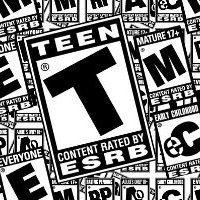TV-MA. Rated R. Rated M for Mature.
Odds are that you have seen these labels before. They exist to inform you, the potential viewer, the level of unsavory content is present in whatever program you happen to be watching or buying. Most of the time, they even come with bonus information to describe the basis for that rating. Violence, sexual themes, and language are all keywords that you’ll see when checking out one of these content rating systems.
All in all, it’s a very neat, concise system that should work flawlessly. So why is it that some people find this so difficult to understand?
Blaming your entertainment for problems, real or imaginary, isn’t anything new. “Tom and Jerry” has long been attacked by parents who are aghast at the thought of their five year old emulating his favorite cartoon by trying to crush his brother with an anvil. Video games have always been under fire, where President Donald Trump even jumped on the bandwagon and publicly claimed they glorify violence.
More recently, the critically acclaimed movie “Joker” caught the negative attention of parents who took their children to the theater expecting a Marvel-esque production, despite all of the advertising pushing against the assumption.
I’m not saying entertainment media has no effect on the consumer’s mental well being. That’s an entirely separate, and frankly more intimidating, issue to cover. What I am saying is that people need to take more responsibility when it comes to how they select their entertainment.
Video games encapsulate this issue perfectly. There is a popular misconception that video game consoles and gaming devices are toys used by children and teenagers, when the reality is quite different. Statistically, the largest demographic of gamers is actually 18 – 35 years, according to Statista, and the market reflects that.
Over the course of the last ten years, every best selling game each year was rated M for Mature. This is where the problem lies; the ratings exist to inform wary parents what they’re purchasing for their child, yet there is no shortage of outcry from people horrified at what they find their kids playing, as if they were not the ones who purchased the game in the first place.
In reality, all of this paints a pretty unflattering picture of today’s society as a whole. People are so quick to blame outside forces on things that they themselves can control. While I can’t speak from experience, since as far as I know I’m not a parent, it is much easier to condemn those darn cartoons rather than take responsibility. We don’t live in China, or some kind of Orwellian dystopia. We get to choose the kind of media that we consume.
Really, the best message I can convey is be aware. Don’t go see “John Wick” if you don’t have the stomach for violence. The R rating doesn’t mean “really safe.” This Christmas, don’t buy your kid “Grand Theft Auto 5” and find yourself shocked when your child is using language that would make a sailor blush.
And finally, hold yourself accountable and stop blaming the media for your own failures. The entertainment rating system is in place to help you make good choices.
Movies and TV aren’t there to make more issues. They’re there to help you forget the ones you already have.
For comments/questions about this story, email [email protected] or tweet @TheWhitOnline.























































































































































!["Working with [Dr. Lynch] is always a learning experience for me. She is a treasure,” said Thomas. - Staff Writer / Kacie Scibilia](https://thewhitonline.com/wp-content/uploads/2025/04/choir-1-1200x694.jpg)








































